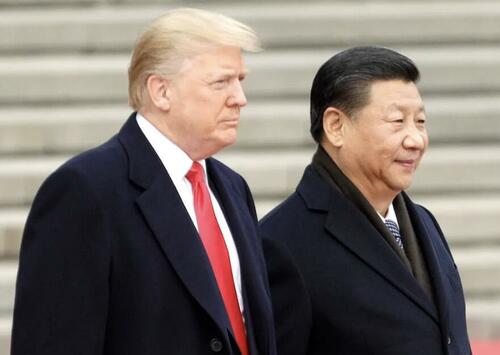"All Necessary Measures": China Warns US Against New Tariffs
Beijing cautioned Washington that it is prepared to respond forcefully - with "all necessary measures" - if a renewed US review of their 2020 trade pact leads to additional tariffs, after American officials indicated the inquiry would press ahead, according to Bloomberg.
In remarks released Wednesday, China’s Commerce Ministry pushed back on comments from US Trade Representative Jamieson Greer, arguing that China has upheld its commitments under the so-called Phase One agreement despite the economic shock of the pandemic. Officials said the country followed through on promises related to intellectual property protections and broader access to its financial and agricultural sectors.
At the same time, the ministry accused the United States of hampering the deal’s rollout by expanding export controls, tightening scrutiny of cross-border investment and layering on other restrictions that, in Beijing’s view, have disrupted ordinary trade flows. It pointed to a policy paper issued in 2025 outlining China’s position.
Bloomberg writes that the ministry warned that if Washington presses ahead with the investigation — or uses it as grounds to impose new trade barriers such as tariffs — China “will take all necessary measures” to safeguard what it described as its lawful interests.
The back-and-forth adds a fresh dose of tension to the relationship ahead of President Donald Trump’s upcoming visit to Beijing, his first trip to China since 2017 and the first by a US president in years. The diplomatic friction follows a Supreme Court ruling that struck down sweeping emergency tariffs enacted during Trump’s second term, effectively lowering duties on Chinese goods compared with those faced by some US allies.
Greer has said the administration retains authority to levy tariffs under Section 301 and other trade laws despite the court’s decision. The Office of the US Trade Representative launched its compliance review of the Phase One agreement in October 2025.
China’s Commerce Ministry called on the United States to evaluate the accord “objectively and rationally,” avoid assigning blame and make use of existing consultation channels to build on areas of agreement and steer ties toward a more stable future.
Tyler Durden Wed, 02/25/2026 - 22:10

Recent comments